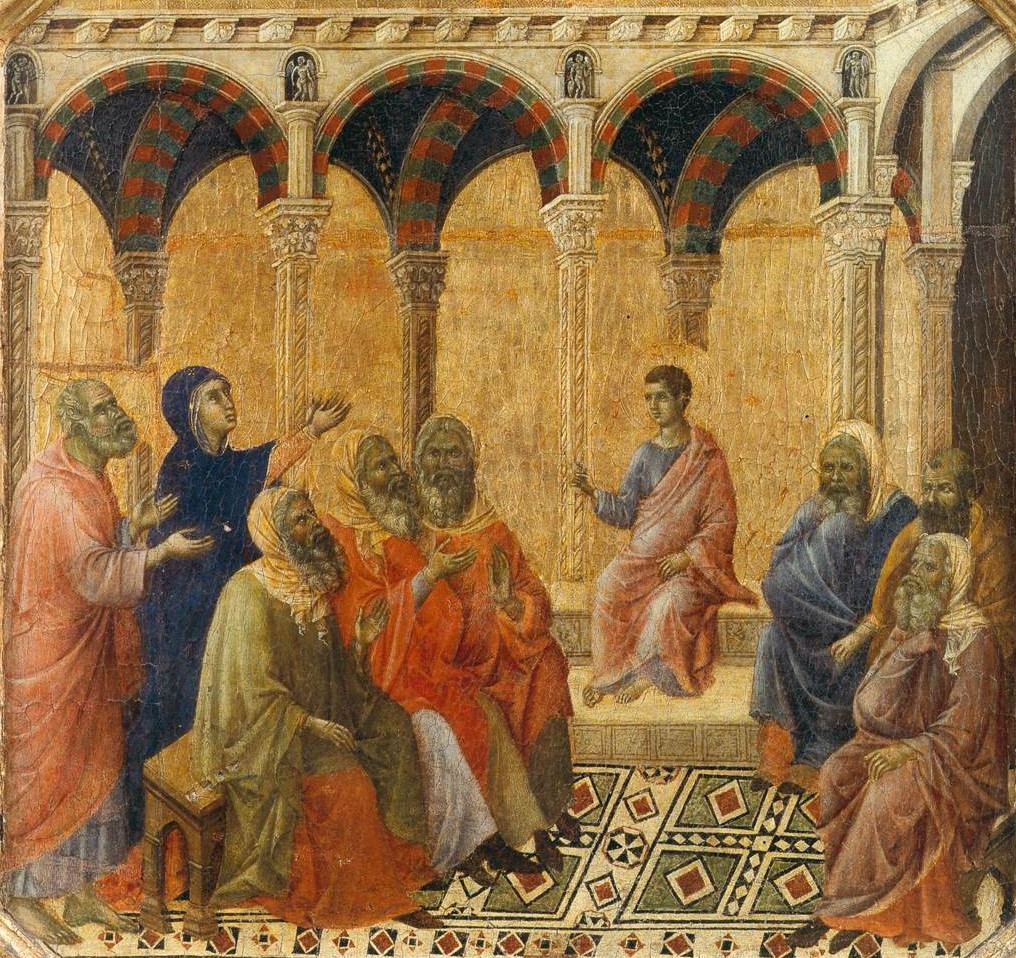Cantata 32 is a “dialog cantata” between two characters: the Soul (represented by the soprano) and Jesus (assigned to the bass). It was composed for the first Sunday after Epiphany, with a libretto by Georg Christian Lehms. The gospel for that Sunday recounts the episode of young Jesus escaping the watch of his parents to go to the temple and discuss with the teachers (Luke 2: 41-52).
The piece calls for solo oboe, strings and basso continuo, soprano and bass solos, and four-part choir for the closing chorale.
The cantata opens with an aria for soprano and oboe which reflects Mary’s distress over her missing son, drawing a parallel with the soul searching for Jesus. The long, ornamented phrases in both the oboe and the soprano reflect the anguish of absence, over short notes from the bass and strings that illustrate wandering and searching.
The second movement, a recitative, is Jesus’ response to his mother when she scolds him for having stayed behind. Its text is a direct quote of the words of Jesus, taken from verse 49 of the gospel reading. As usual, Bach gives the words to the bass solo (a device called “vox Christi”).
This is followed by an aria for the bass accompanied by solo violin, which establishes the comfort Jesus offers to the afflicted soul, welcoming it to his father’s temple.
The next recitative, accompanied by strings, is a dialogue between the soul and Jesus, in which the soul accepts the comfort offered by Jesus. The texture of the accompaniment for the soprano changes in her second intervention (on a quote from Psalm 84), as the movement becomes an arioso, upon the soul accepting the “living God.” This stanza represents the inflection point of the libretto – a marked change in mood that leads to a joyous conclusion.
The next movement is a lively duet, whose the text refers to the disappearance of torment and pain thanks to the soul and Jesus’ mutual embrace. Notably, this is the only movement in which the two characters sing together as they finally become united. Bach illustrates the concept of the embrace with the combined accompaniment of the violin and oboe.
The libretto lacked a final chorale, so Bach added a verse from a hymn by Paul Gerhardt, dating from 1647, set to traditional four-part harmony with the instruments doubling the voices.

